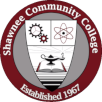 Policy
Policy
Policy Type: Board – Strategic Outcomes
Responsible: President
Related Policies: B1003, B1004, B1005, B1006, B1007, B1008, B1009
Linked Operating Standards: None
Related Laws: 110 ILCS 805/ Illinois Public Community College Act
Related External Standards: None
HLC Criterion: 1A1A The institution’s educational programs, enrollment profile and scope of operations align with its publicly articulated mission., 1B1B The institution’s operation of the academic enterprise demonstrates its commitment to serving the public good., 1C1C The institution provides opportunities for civic engagement in a diverse, multicultural society and globally connected world, as appropriate within its mission and for the constituencies it serves.
Policy Statement
The purpose of Shawnee Community College is to offer high-quality and affordable higher education services to the residents of Alexander, Johnson, Massac, Pulaski, Union, and parts of Jackson Counties in Illinois. These services are designed to enhance individual economic mobility, foster personal growth, and boost the local economy, all at a cost that reflects the value provided.
Students, businesses, educational partners, community residents, and local governments are the primary beneficiaries of the College’s services.
Specifically, students receive value by:
- Participating in activities that develop improved skills with communication, problem-solving, critical thinking, time management, and self-discipline that lead to personal and professional success.
- Acquiring the knowledge, skills, and self-confidence needed for employment and career advancement in a global economy.
- Participating in activities that build connections with peers, faculty, alumni, and working professionals that increase access to employment opportunities and provide greater career flexibility.
- Maximizing their potential for future earnings growth, job security, and economic mobility, often leading to a higher quality of life.
- Achieving individual potential as productive, informed, and engaged citizens.
- Pursuing personal, avocational, and leisurely interests that enrich their lives.
Businesses receive value by:
- Attaining, retaining, and growing a skilled workforce that enhances productivity, fosters innovation, and enhanced opportunities to compete in a global environment.
- Accessing research, customized training, and consulting services that lead to greater agility to respond to shifts in demographics, technology, and economics.
- Increasing revenue from consumer spending of college graduates and employees.
Educational partners receive value by:
- Creating and connecting students to seamless educational pathways through the implementation of shared programming (i.e., dual credit, dual enrollment, and articulation agreements) that increases enrollment, increases curricular efficiency, and facilitates greater student outcome attainment (e.g., retention, persistence, and completion).
- Sharing resources (e.g., faculty, facilities, technology, research, professional development, grant/funding, etc.) in ways that reduce cost and improve operational efficiency.
Community residents receive value by:
- Having affordable access to higher education.
- Having access to opportunities for professional employment.
- Participating in opportunities for personal enrichment, healthy lifestyle choices, and cultural engagement.
- Realizing increased property values resulting from a thriving local economy that supports business development.
Local Governments receive value by:
- Collecting more sales and property tax revenue generated from students, employees, and graduates who have amplified their earning capacity and can accumulate wealth.
- Enhancing economic development opportunities that promote business development, improve employment rates, and increase the local tax base.
- Engaging informed citizens who actively participate in local governance.
- Creating opportunities for informed citizens who are willing to engage in community organizations and community development activities to expand social services and (potentially) lower the cost.
All stakeholders attain these values through the following strategic outcomes:
- Transfer courses and degrees designed to provide the first two (2) years of a baccalaureate education.
- Professional (i.e., Career-oriented) courses, certificates, and degrees designed to prepare students for entry-level employment and apprenticeships.
- Continuing education and/or training seminars, courses, certificates, and programs designed for individuals who want to upgrade occupational skills for current jobs, retrain for new jobs, or prepare for a new career.
- Customized workforce training, consulting, and technical assistance programs/services that support public and private sector economic development.
- Courses and/or programs that provide students with basic academic skills needed to participate and succeed in college level study.
- Courses and/or programs that provide students with the academic skills needed to attain their high school diploma or GED.
- Community education and avocational activities and programs that contribute to personal interest, growth, and enrichment.
- Services, activities, and programs designed to: attract students; help students identify educational goals, select achievable career paths, and enroll in appropriate courses and programs; provide academic support to assist students with their educational goals; provide student support services enabling them to persist in the achievement of their educational goals; assist students with disabilities with equal access to the College’s activities, courses, programs, and services through reasonable accommodation; assist students with the attainment of clinical placements, internships, and post-graduation employment; enhance classroom learning by providing co-curricular and extracurricular experiences; and develop academic and personal skills to achieve student success.
In summary, the College plays a vital role in the success and prosperity of our service area by offering accessible, flexible, relevant, and diverse educational opportunities. These opportunities not only promote personal and professional growth, but also enhance economic mobility and improve the social well-being of our community.
| Change Log | Governance Unit: Board of Trustees |
| Date | Description of Change |
| 03-07-22 | Initial Adoption |
| 06-15-23 | Minor Grammatical Changes |
| 08-15-24 | Board Reviewed, Strengthen Value Language; Grammatical Changes |
| 08-21-25 | Board Reviewed, Minor Grammatical / Punctuation Changes |
